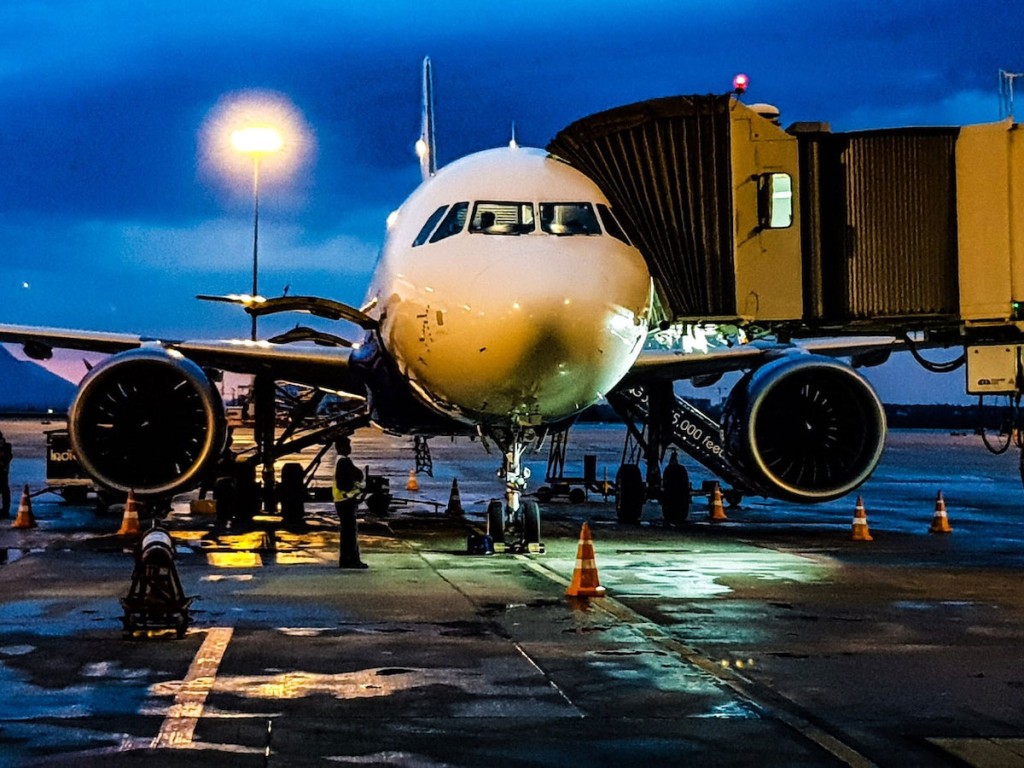
U.S. airlines are unlikely to raise fares enough to completely offset jet-fuel costs that are at their highest levels in more than a decade, pulling the industry’s shares down the most in the S&P 500.
Uncertainty over the global oil supply has boosted prices since Russia invaded Ukraine on Feb. 24. The spot jet-fuel price in New York harbor has surged 57% since the start of 2022 to $3.61 a gallon Monday, the highest since 2008. As recently as January, the biggest U.S. airlines forecast jet fuel at no more than $2.50 or so for the first quarter.
While airlines could raise fares by reducing the number of seats available, carriers are likely to tread carefully, analysts said. Roundtrip domestic tickets are about $305, 4% below the average from the same time in 2019, according to Hopper Inc., a travel search engine.
“We do not expect the airlines to reduce a significant amount of capacity, so expect tweaks and not cuts, which ultimately means overcoming higher fuel prices is unlikely,” Conor Cunningham, an MKM Partners analyst, said in a report Sunday. “It is certainly a start to get pricing moving in the right direction.”
Airline shares dropped sharply Monday as oil prices jumped. The Standard & Poor’s broad index of airline stocks fell as much as 12%, the most intraday since June 2020. United Airlines Holdings Inc. tumbled nearly 15% at 3:26 p.m. in New York, while Delta Air Lines Inc. slid 12%, American Airlines Group Inc. fell 11% and Southwest Airlines Co. declined 8.7%.
Carriers have to be cautious because they are eager to recover from the pandemic’s destruction of demand in 2020 and the fuel-price spike could be short-lived, Christopher Stathoulopoulos, an analyst at Susquehanna Financial, said in an interview.
“It’s a tough spot to be in, there are some tough choices to be made,” he said. “Their response has to be very thoughtful versus a knee-jerk reaction.”
While many European carriers seek protection from fuel-cost spikes by locking in prices, American, United, and Delta don’t use such hedging contracts on their airline operations. Southwest is an exception and has 64% of its fuel needs hedged for this year. Alaska Air Group Inc. hedges about 50% of its expected consumption.
“The current energy price environment is exactly why we have a systematic hedging program—to provide insurance in the near term,” Southwest spokesman Brad Hawkins said by email. American and United declined to comment, while Delta didn’t immediately respond to a request.





_-_127500_-_27c823241580996b2f70e43819ff4c27da31c732_lqip.jpg)


